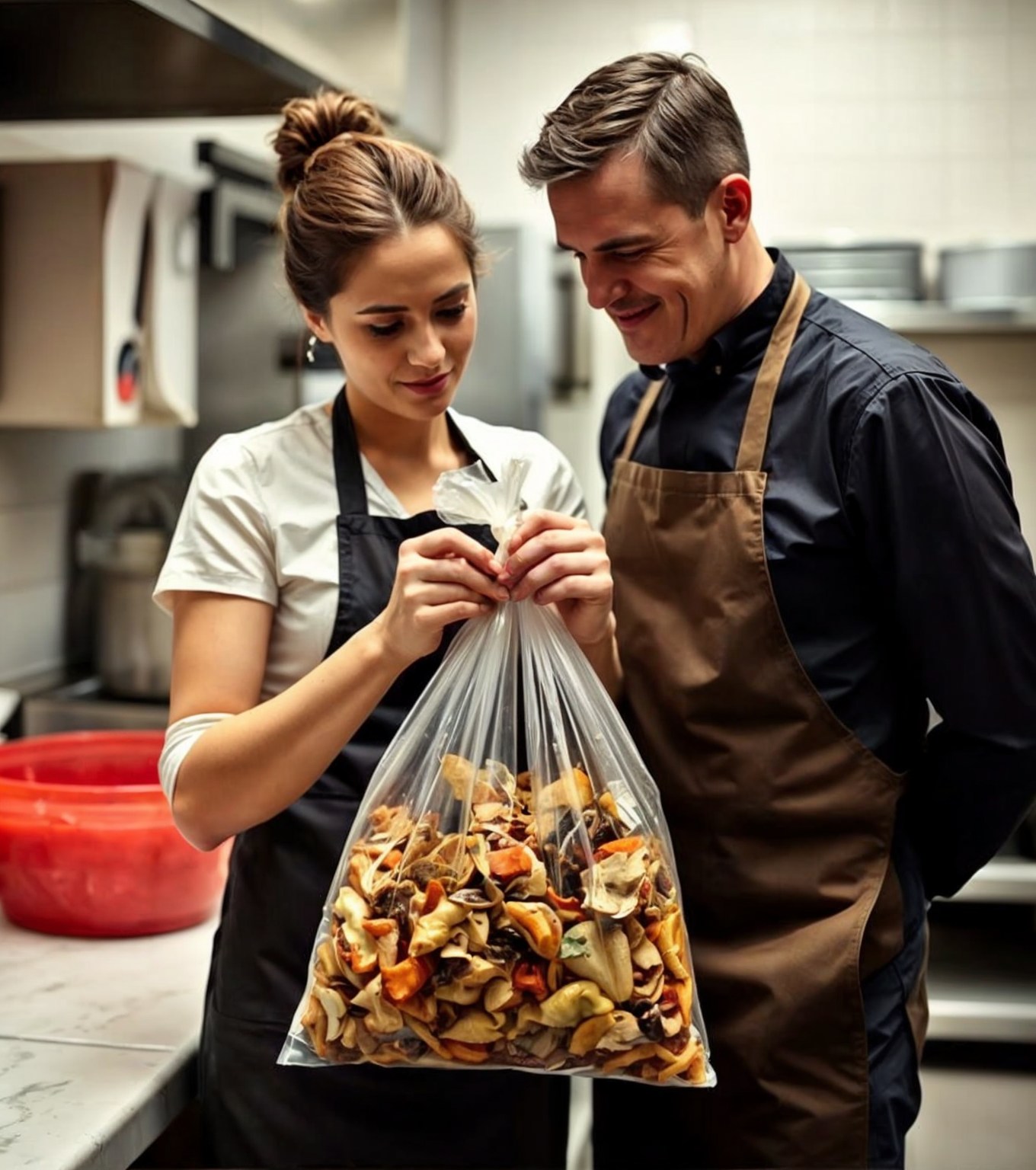Soft golden light spilled through the tall windows of a quaint little restaurant called “Old Town.” As the last guests departed, Pavel moved quietly through the empty dining room, wiping down tables and adjusting the tablecloths with mechanical precision. The evening had settled in, but the weight of the day lingered on his shoulders like a damp coat. He glanced at the wall clock—just thirty more minutes before he could finally head home.
The faint clatter of dishes echoed from the kitchen, where the cooks were wrapping up their shift. The owner, Anna Sergeyevna, had already left, leaving Pavel to close the front of the house alone. He didn’t mind. In fact, these final quiet moments were his favorite—a rare pause to breathe.
Snowflakes drifted outside like tiny ghosts, catching the dim glow of the streetlamps. Winter had settled in early this year, fierce and unforgiving. Most pedestrians hurried past the restaurant, bundled in layers against the cold. Pavel shivered. He had forgotten his gloves again. “It’s just a short walk,” he reassured himself.
Movement near the entrance caught his eye. A woman stood at the edge of the doorway, half-hidden by shadows. Her gray coat looked threadbare, and her windblown hair framed a pale, uncertain face. She didn’t try to enter—just stared longingly through the window at the food that hadn’t yet been cleared.
“We’re closing,” Pavel called out gently, instinctively stepping toward the door.
She flinched and backed away, as though expecting to be scolded. But something in her eyes—tired, lost, and full of quiet hunger—stopped him.
Pavel pretended to continue cleaning, watching her from the corner of his eye. Then, like a whisper, she slipped inside and approached one of the tables. In quick, practiced motions, she began transferring leftover food into a battered bag.
He should have stopped her. Rules were rules. But he didn’t.
“Wait,” he said softly. “Let me pack it for you. It’ll keep better that way.”
She froze, her hands trembling over a half-eaten plate of salad. A blush crept into her cheeks. She nodded, barely meeting his gaze.
“It’s fine,” Pavel added, pulling out clean containers. “It’s better this way than letting it go to waste.”
He packed the food carefully, even slipping in a few fresh rolls he’d hidden away earlier. As he handed her the bag, he smiled.
“Hot dishes and some salad. Still good.”
“Thank you,” she whispered, then quickly disappeared into the night.
That night, Pavel couldn’t sleep. Her face haunted him—the cautious movements, the quiet desperation. He wondered where she lived, if she had anyone waiting for her.
The next evening, just before closing, she returned. This time he was ready. He’d saved untouched portions, tucked away where no one would notice.
“Come in,” he greeted her, trying to make his voice warm.
Her name was Lena, she said shyly. Young, but worn down by something deeper than age. Her hands moved with purpose as she divided the food, carefully packing portions. Pavel watched her closely.
“You’re not just feeding yourself, are you?” he asked.
Lena stiffened, then looked away. She didn’t answer.
From then on, their silent arrangement became a quiet ritual. Pavel noticed what customers left behind, set aside extra portions when he could, and waited for Lena each night. Sometimes he added hot tea. Sometimes just a kind word. Their conversations remained short—but gradually, they grew.
One bitter evening, with frost painting the windows, Lena lingered longer than usual. Pavel offered her a seat and a cup of tea.
“If it’s not too much trouble,” she murmured.
He brought tea and pies to her table. Her fingers curled around the cup, absorbing the warmth.
“This is… nice,” she said softly. “Thank you.”
They sat together for nearly an hour. She didn’t speak much about herself, but she laughed at his stories—genuine, unguarded laughter.
Then, one day, she stopped coming.
Pavel waited each evening, eyes flicking to the door every few minutes. Worry gnawed at him. Had she fallen ill? Been hurt? Worse?
One night, he overheard a conversation at a nearby table.
“There’s a charity gala tomorrow—some new outreach program for the homeless. Sounds interesting.”
Pavel’s intuition flared. He needed to be there.
He arrived the next evening, dressed in his best clothes. The event buzzed with elegance and well-dressed strangers. As a speaker stepped onstage, Pavel froze.
It was Lena.
Gone was the gray coat. She wore a tailored suit, her posture poised, voice confident.
“Our city is full of invisible people—those who need help, but go unnoticed. We’ve created a foundation to connect them with those who care.”
Pavel stood in disbelief. Slowly, it dawned on him: Lena had been watching, testing, searching for someone genuine.
After the presentation, amid the buzz of conversation and clinking glasses, Lena spotted him and walked over.
“You came,” she said with a soft smile.
“You never told me,” he replied.
“I couldn’t,” Lena said. “I needed to know who would help without being asked. Without expecting anything in return.”
She handed him a business card.
“We need people like you, Pavel. People who help not because they have to—but because they can.”
“I’m still just a waiter,” he chuckled.
“You’re more than that,” she said. “Come see us.”
A week later, he did.
Pavel kept his job at Old Town but spent his weekends volunteering. Distributing meals, teaching kitchen skills, helping organize events. With every hour spent helping others, something in him healed.
And every time he saw Lena—smiling, radiant, grateful—he felt that maybe, just maybe, this was the beginning of something bigger than either of them could have imagined.
